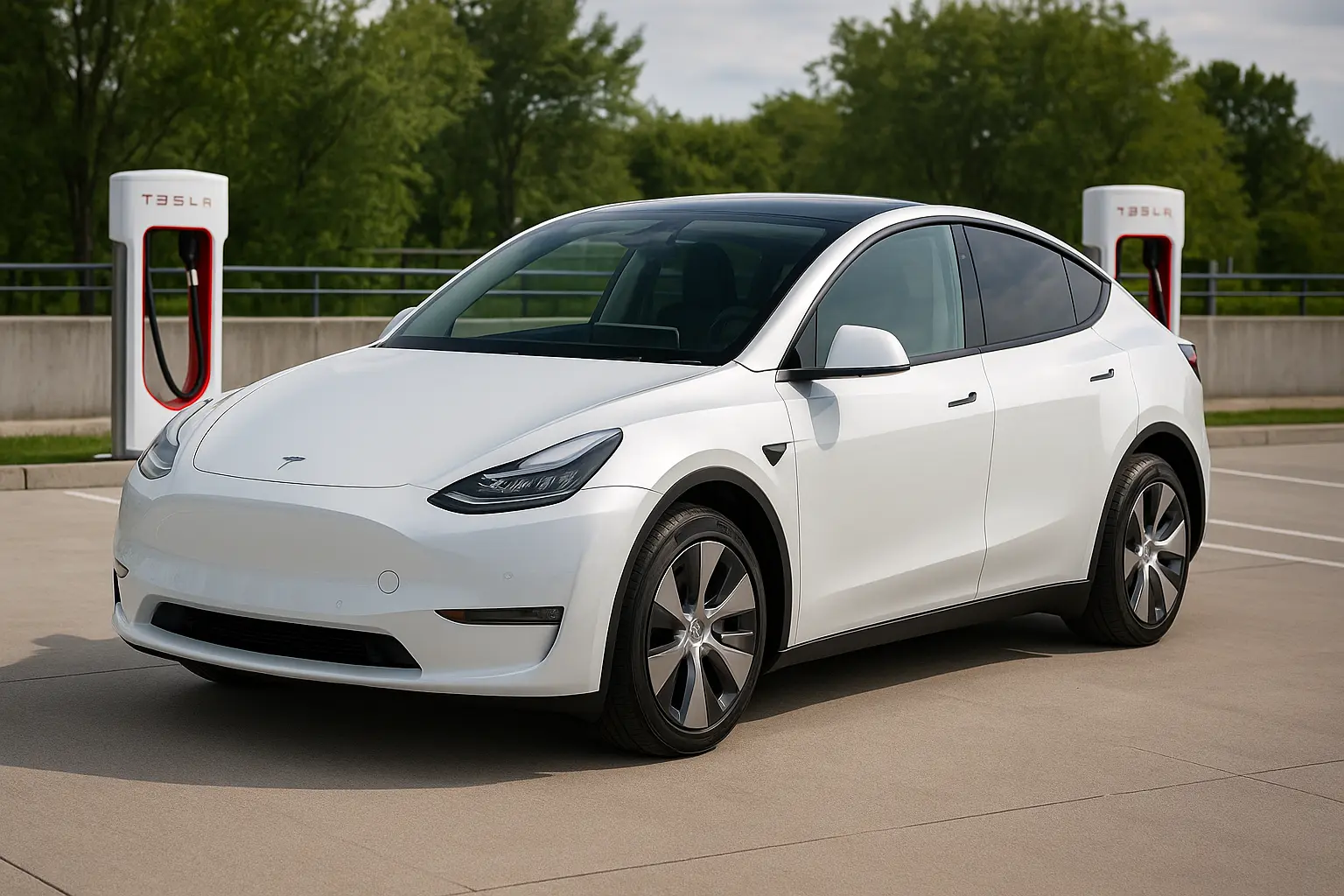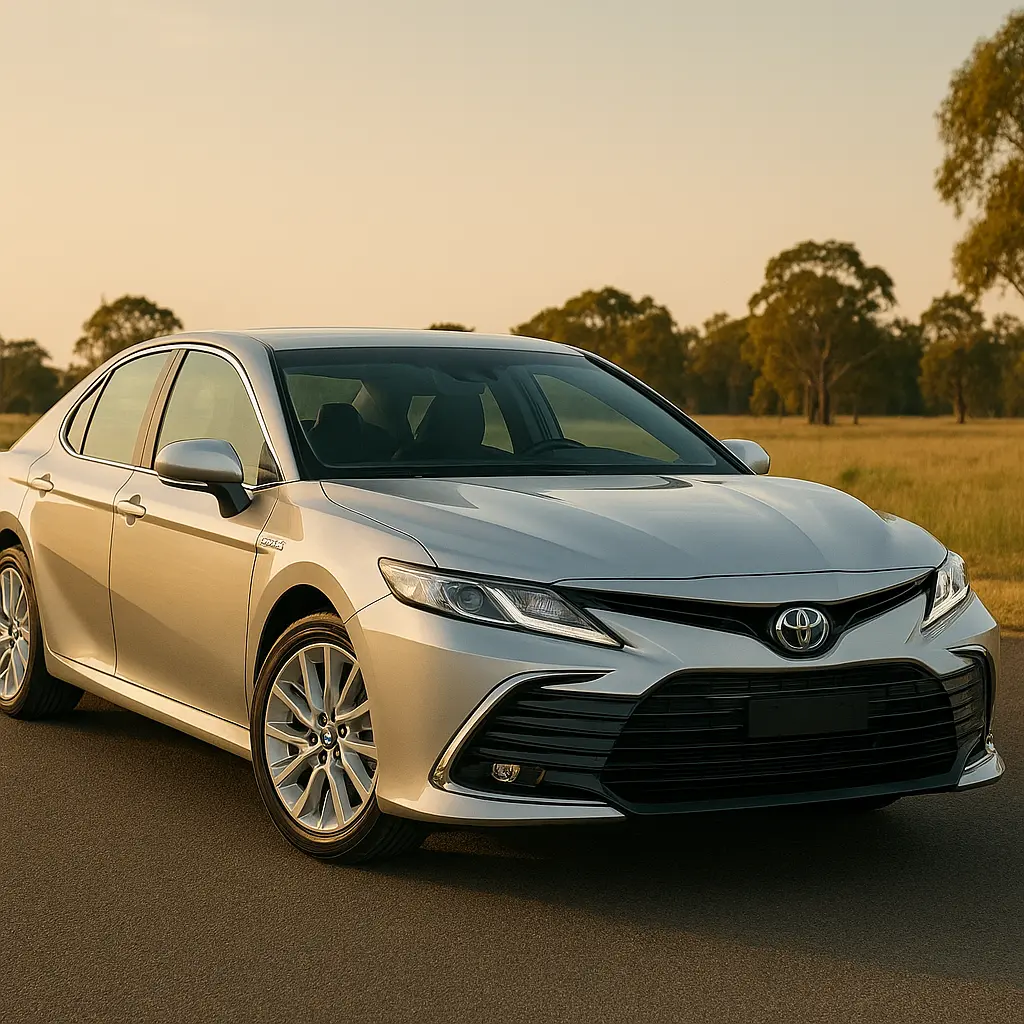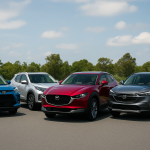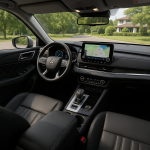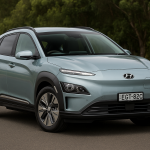Australia’s car market is in the middle of a major shift. As fuel prices fluctuate and environmental concerns grow, more drivers are looking for alternatives to traditional petrol and diesel vehicles. While electric vehicles (EVs) are gaining traction, hybrid sedans remain a sweet spot for Australians who want fuel efficiency without worrying about range anxiety or charging infrastructure.
Hybrid sedans combine an internal combustion engine with an electric motor, delivering better fuel economy, smoother city driving, and reduced emissions. For Australian drivers, especially those who split their time between city commutes and long regional drives, hybrid sedans provide practicality, affordability, and reliability.
In this guide, we’ll explore the top hybrid sedans in Australia, their performance, technology, fuel economy, pricing, and what makes each of them worth considering.

Key Benefits of Hybrid Sedans
Fuel Efficiency
One of the strongest reasons Australians choose hybrids is fuel savings. Hybrid sedans often deliver 30–50% better fuel economy than standard petrol vehicles, making them attractive to commuters and families.
Eco-Friendly Driving
While not completely zero-emission like EVs, hybrids produce fewer tailpipe emissions. This reduces their carbon footprint, making them a greener option for eco-conscious Australians.
Affordable Transition to Green Cars
Compared to EVs, hybrids are generally more affordable and don’t require drivers to depend solely on Australia’s growing — but not yet complete — EV charging network.
Lower Running Costs
Hybrids often require less maintenance than conventional cars, thanks to regenerative braking and less engine strain. For Aussies who keep cars long-term, this is a big advantage.
Top Hybrid Sedans in Australia (2025)
Toyota Camry Hybrid
The Toyota Camry Hybrid has long been one of Australia’s most popular sedans, and for good reason. Known for reliability, comfort, and excellent resale value, the Camry Hybrid dominates the hybrid sedan market.
- Engine & Powertrain: 2.5L petrol engine paired with an electric motor, producing a combined 160kW.
- Fuel Economy: Around 4.5L/100km.
- Interior Features: Spacious cabin, Apple CarPlay/Android Auto, advanced safety features.
- Why It Works in Australia: Perfect balance of affordability, practicality, and Toyota’s unmatched hybrid reputation.
Honda Accord Hybrid
A premium midsize sedan, the Honda Accord Hybrid blends elegance with efficiency. It’s a great choice for Aussie professionals or families who want more luxury in their hybrid drive.
- Engine & Powertrain: 2.0L Atkinson-cycle petrol engine with two electric motors, outputting 158kW.
- Fuel Economy: About 4.3L/100km.
- Interior Features: Sleek digital display, leather trim, roomy back seat, and Honda Sensing driver-assist tech.
- Why It Works in Australia: Reliable Honda build, luxury touches without a European price tag.
Hyundai Sonata Hybrid
Hyundai has steadily improved its reputation in Australia, and the Sonata Hybrid is proof of its global ambitions. Offering modern tech and great efficiency, it’s a compelling alternative to Toyota’s dominance.
- Engine & Powertrain: 2.0L petrol engine with electric motor, combined 150kW.
- Fuel Economy: Roughly 5.0L/100km.
- Interior Features: Panoramic digital displays, ventilated seats, high-quality cabin materials.
- Why It Works in Australia: Strong warranty (5 years/unlimited km), sharp styling, and excellent comfort.
Lexus ES 300h
For those who want premium luxury, the Lexus ES 300h stands out. Built on Toyota’s hybrid expertise but with Lexus’s premium touches, it’s a sedan that delivers both refinement and fuel efficiency.
- Engine & Powertrain: 2.5L petrol engine + hybrid system, delivering 160kW.
- Fuel Economy: 4.8L/100km.
- Interior Features: Leather upholstery, Mark Levinson sound system, premium driver aids.
- Why It Works in Australia: Luxury at a lower cost compared to European sedans, paired with Toyota reliability.
Kia Niro Sedan (Hybrid Version)
Though more commonly seen as an SUV, Kia’s Niro sedan variant in some global markets is being talked about for its possible Australian arrival. If it lands here, it would provide another affordable and efficient hybrid option.
- Engine & Powertrain: 1.6L petrol + electric motor, around 104kW combined.
- Fuel Economy: 4.7L/100km.
- Interior Features: Infotainment upgrade, good rear seat room, value-for-money finish.
- Why It Works in Australia: Kia’s 7-year warranty makes it attractive for long-term ownership.
Toyota Corolla Sedan Hybrid
Another Toyota best-seller, the Corolla Sedan Hybrid, is a smaller and more budget-friendly hybrid sedan option compared to the Camry.
- Engine & Powertrain: 1.8L petrol engine with hybrid system, producing 90kW.
- Fuel Economy: 4.2L/100km.
- Interior Features: Compact yet comfortable, good boot space, Toyota Safety Sense.
- Why It Works in Australia: Affordable entry-level hybrid sedan for city drivers and students.
Mazda Hybrid Sedans (Coming Soon)
Mazda has hinted at expanding hybrid offerings in Australia. While the Mazda 3 Hybrid is already available in Japan, the Mazda 6 Hybrid is expected to make its way to Australia.
- Expected Benefits: Signature Mazda driving dynamics with hybrid efficiency.
- Why It Matters: Aussies who love Mazda styling and performance will soon have eco-friendly options.
Hybrid Sedan Buying Guide for Australians
What to Look For
- Fuel Efficiency: Aim for hybrids with 4–5L/100km consumption.
- Warranty Coverage: Toyota, Kia, and Hyundai offer strong hybrid warranties.
- Technology: Look for driver assistance, infotainment, and comfort features.
- Resale Value: Toyota hybrids generally hold the strongest resale value in Australia.
Pricing in Australia
- Entry-level hybrids like the Toyota Corolla start around $30,000–$35,000.
- Midsize options like the Camry Hybrid are typically $40,000–$45,000.
- Premium sedans like the Lexus ES 300h climb towards $60,000+.
Hybrid vs. EV Sedans: Which Should Australians Choose?
- Hybrid Advantage: No reliance on charging stations, lower upfront cost, strong resale.
- EV Advantage: Zero emissions, future-focused tech, potential incentives.
- Best Fit in 2025 Australia: For drivers outside metro areas or those not ready for full EV adoption, hybrids remain the smarter, more practical option.
Maintenance & Ownership Costs
Hybrid sedans often surprise Aussie buyers with lower maintenance needs. Regenerative braking reduces wear on brake pads, and hybrid engines don’t work as hard as traditional petrol engines. Toyota and Lexus also have extensive hybrid servicing experience, giving peace of mind.
Insurance premiums can be slightly higher for hybrids due to their tech, but fuel savings often balance this cost over time.
Future of Hybrid Sedans in Australia
By 2030, many carmakers are pledging to go all-electric. However, until charging infrastructure in regional Australia improves, hybrid sedans will remain a key part of the transition. Expect more affordable models, plug-in hybrid sedans (PHEVs), and premium offerings in the near future.
Conclusion
Hybrid sedans in Australia provide a balanced solution for drivers who want fuel efficiency, lower emissions, and everyday practicality without compromising comfort. Whether you’re eyeing the budget-friendly Corolla Hybrid, the versatile Camry Hybrid, or the luxury Lexus ES 300h, there’s a hybrid sedan to suit every budget and lifestyle.
For Aussies navigating between rising fuel prices, environmental concerns, and future EV adoption, hybrid sedans are not just a compromise — they’re a smart, forward-thinking choice.
Leave a comment
Your email address will not be published. Required fields are marked *



